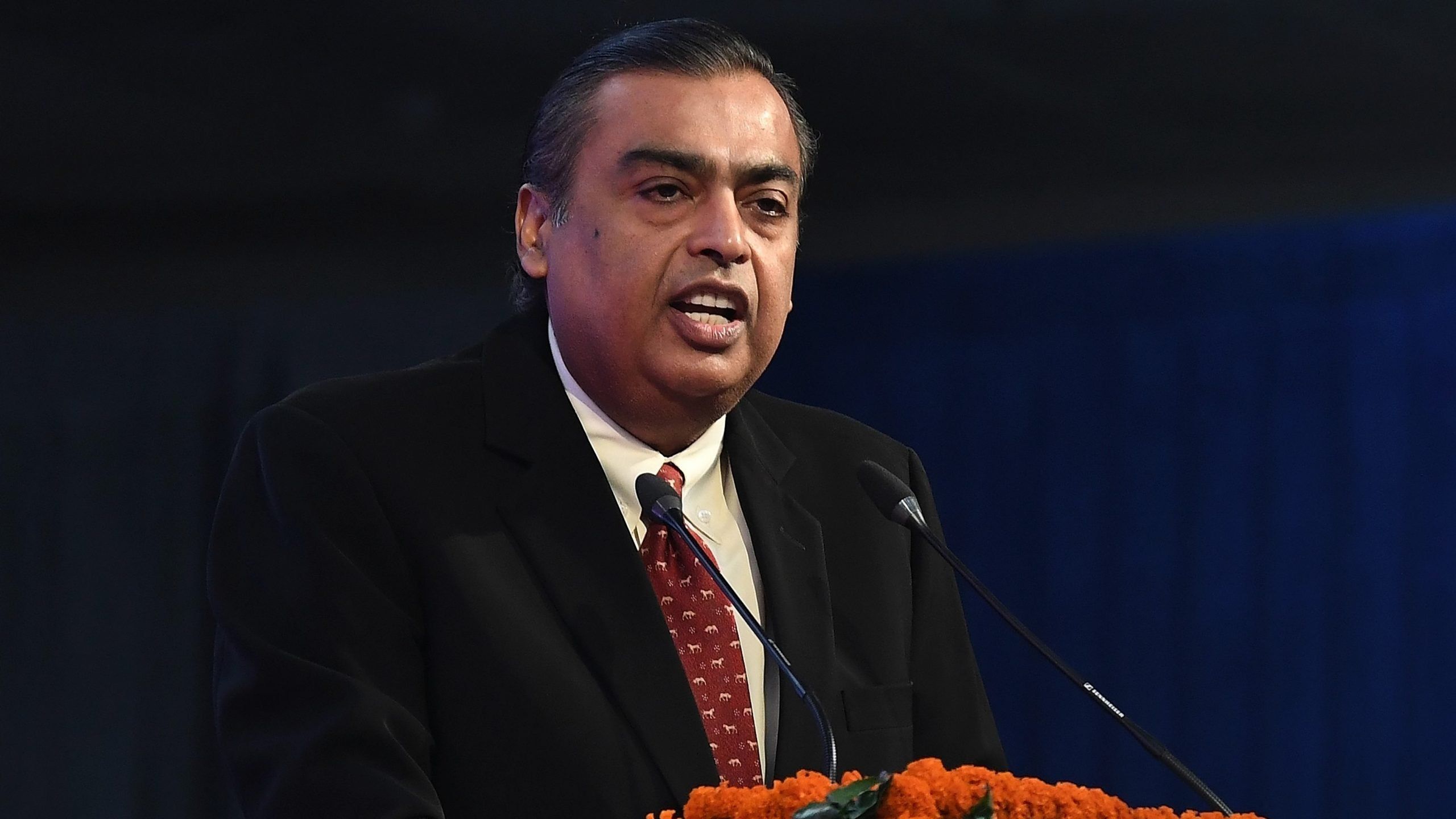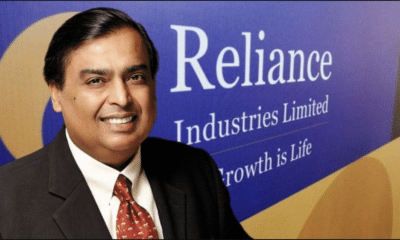Business
Mukesh Ambani says Reliance now has strong balance sheet to support growth
After record fundraising and debt prepayments, Reliance Industries Ltd now has a strong balance-sheet with high liquidity that will support growth plans for its three hyper-growth engines – telecom arm Jio, retail and oil-to-chemicals business, firm’s Chairman and Managing Director Mukesh Ambani said.
In the company’s latest annual report released on Wednesday, he said the company sold minority stakes in Jio Platforms – the unit that houses its telecom and digital business – and retail arm for almost Rs 2 lakh crore, 49 per cent in fuel retailing venture for Rs 7,629 crore and raised another Rs 53,124 crore through rights issue.
“We now have a strong balance-sheet with high liquidity that will support growth plans for our three hyper-growth engines Jio, Retail and O2C,” he said.
During 2020-21, Reliance completed India’s largest ever Rights Issue of Rs 53,124 crore (oversubscribed by 1.59 times), which was also the largest in the world by a non-financial institution in the last 10 years.
“During the year, Jio Platforms and Reliance Retail raised Rs 1,52,056 crore and Rs 47,265 crore respectively from strategic and financial investors, including Facebook and Google,” he said. “bp invested Rs 7,629 crore for a 49 per cent stake in our fuel retailing business.”
While the company sold almost 15 per cent stake in Reliance Retail Ventures Ltd, it lowered its shareholding in Jio Platforms Ltd to 66.3 per cent from 100 per cent a year back. It holds 100 per cent in the O2C business for now. It has been talking to Saudi Aramco to sell a 20 per cent stake in O2C for an asking of USD 15 billion.
These fund raise helped Reliance reach net zero-debt target ahead of schedule. “We executed the largest ever capital raise in India, of Rs 2,60,074 crore (USD 36 billion), through rights issue and asset monetisation. The fund raised, along with capital commitments, exceeded net debt levels, helping your company achieve a net debt free balance sheet ahead of the stated timeline of March 2021,” he said.
“Strong operating cash flow and largest ever capital raise further strengthened our balance sheet, enabling us to deleverage and meet our net-debt zero commitment ahead of stated timeline,” he said adding during the year, Reliance made pre-payment of USD 7.8 billion of long-term foreign currency debt, with requisite approvals from the RBI.
This is the highest ever pre-payment of debt undertaken by any corporate borrower in India.
Ambani said the past year has been a challenging one with COVID-19 pandemic disrupting several lives and dealing a severe blow to the economic health of the nation.
“It has also put tremendous burden on the healthcare infrastructure of the nation which is crucial for saving lives and reducing the impact of the pandemic,” he said listing out relief efforts by the firm including setting up India’s first dedicated COVID-19 hospital in Mumbai in just two weeks, setting up more hospitals in Mumbai and Gujarat, manufacturing PPE kits, producing medical-grade oxygen, and vaccinating company employees and their dependants.
Despite the pandemic, Reliance continued to execute its growth plans across businesses, he said.
Retail business grew physical and digital footprint with store additions, strengthening of supply chain infrastructure and launch of online delivery platform JioMart. In the Digital Services business, it increased network capacity and spectrum footprint while rapidly growing the customer base.
“Our consumer businesses, Reliance Jio and Reliance Retail, have proved to be digital and physical lifelines of the nation in these challenging times,” he said.
The O2C business demonstrated resilience to the rapidly evolving business environment.
“Diversified earnings streams and resilient consumer businesses helped the company navigate through the unprecedented pandemic headwinds,” he said. “Reliance recorded a consolidated net profit of Rs 53,739 crore during the year, registering a growth of 34.8 per cent year on year.”
Consumer businesses now constitute nearly 50 per cent of consolidated segment EBITDA compared to 36 per cent in FY 2019-20.









































Pingback: Mukesh Ambani buys two green firms in clean energy push